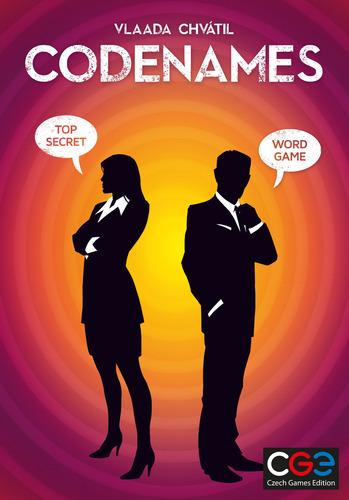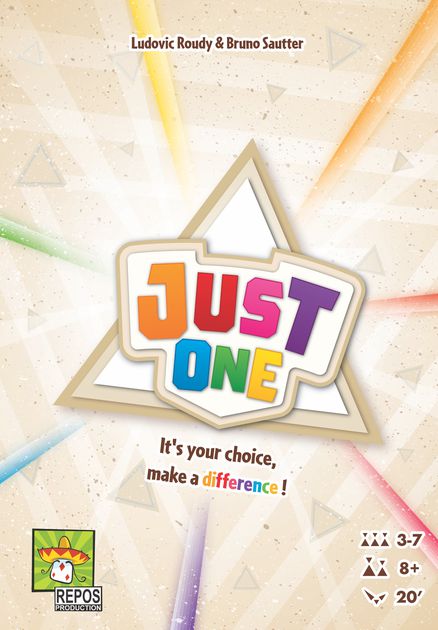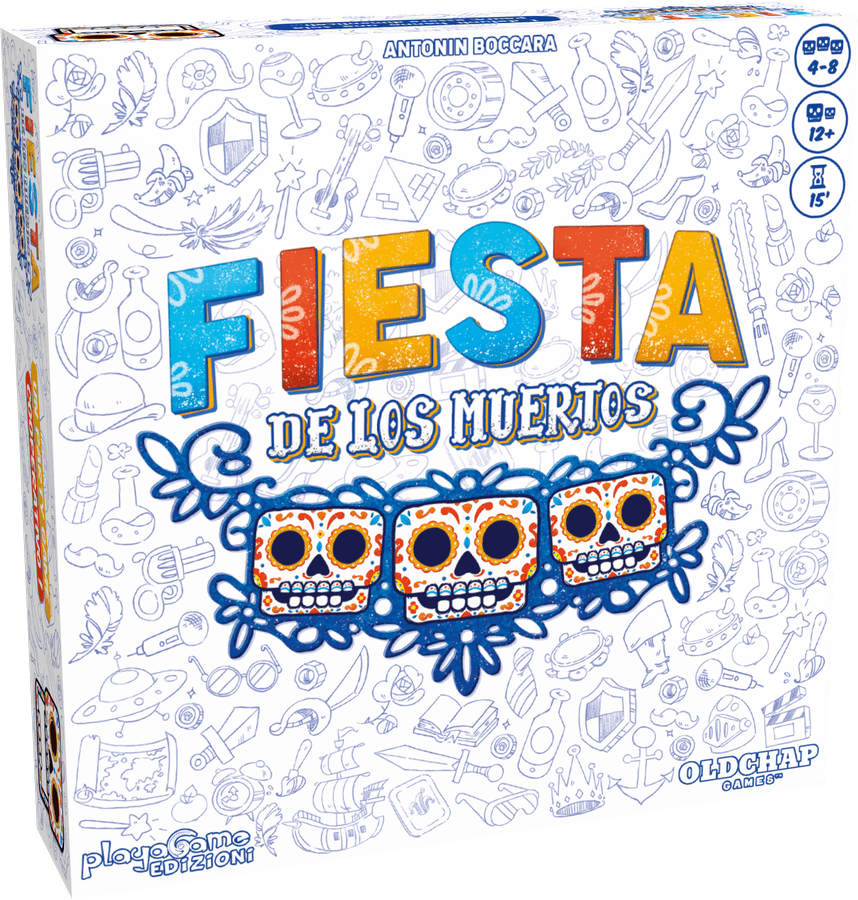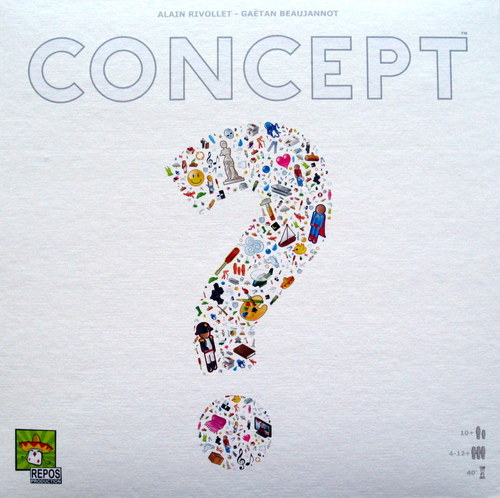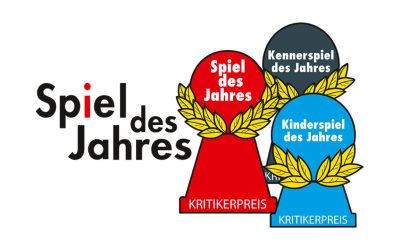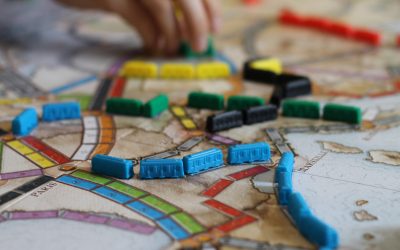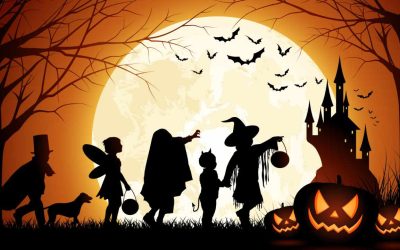Word Guessing Games
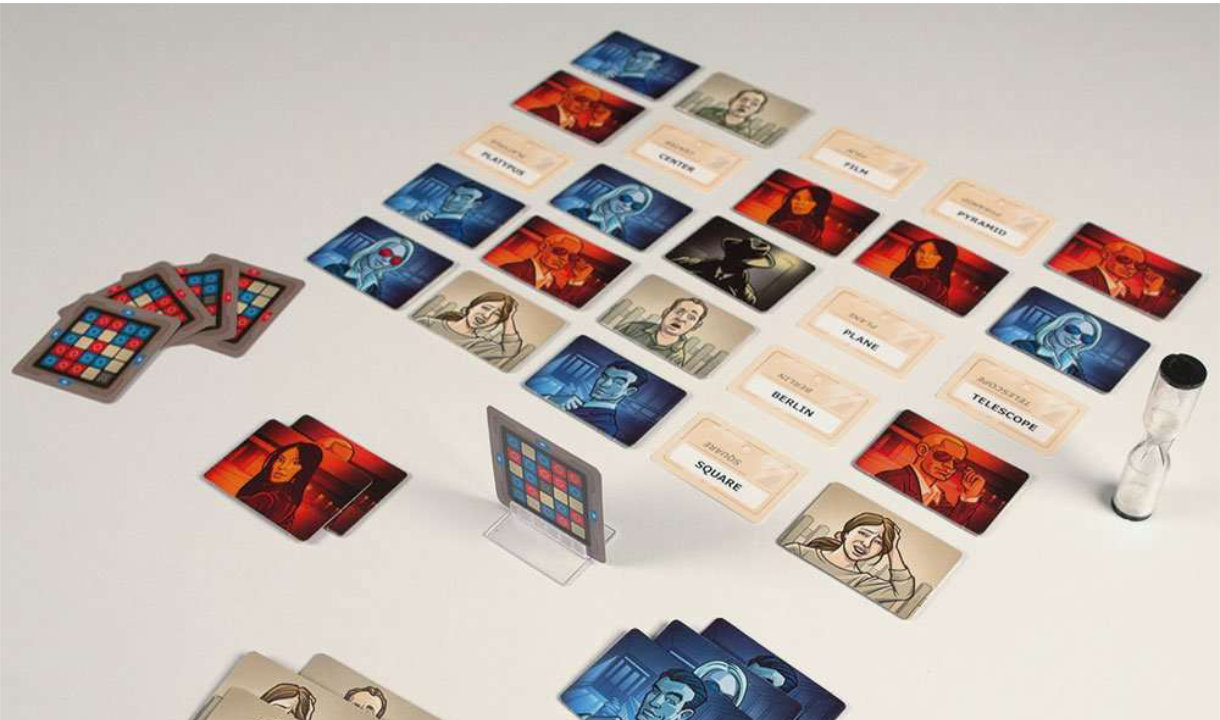
The philosopher Friedrich Nietzsche once said:…
“All I need is a sheet of paper and something to write with, and then I can turn the world upside down.”
Even though I am almost certain that he did not say this with regards to board games, part of me wonders and wishes that he did. We all agree that words can be powerful things. Obviously they are a way for us humans to express ourselves, but they are also so much more. They can be a source of comfort, hurt or hope. They are able start wars and at the same time have the ability to heal and bring us closer together. Words are awesome!
This versatile source of spoken or written power has not been lost to the board gaming world. For decades games like Scrabble or Boggle have shown us that playing with words can be both, entertaining and mentally stimulating. Trivial Pursuit has shown us that knowing or not-knowing a word can be the difference between winning and loosing. But these are also examples of games that are based on a solitary player experience. Each player is working on how to use use a word efficiently in their own mind. This can offer some satisfaction by outsmarting the other players, but it doesn’t really lend itself to a particularly fun group experience.
In more recent years there has been a push of games that are using word-guessing mechanics in a group or team setting. Many of them are co-operative or, at the very least, put less emphasis on who might be winning. Instead they focused on a fun and communal activity.
The most notable game in this category would probably be Codenames by the Czech game designer Vlaada Chvátil. Since its release in 2015, it has become one of the most popular new games in recent history. The concept is reasonably simple: The group of players (usually at least 4) is divided into two teams that are competing. Each team has a clue giver, both of them are sitting on the same side of the table. 25 cards are laid out on the centre of the table in a 5×5 grid, and the clue givers have a card in front of them (only they can see it) which shows which cards belong to which team. On their turn they give a one-word clue to their team, followed by the number of cards they hope their team will find based on that clue. For example, if the cards belonging to a team include ‘bark,’ ‘leaf’ and ‘nest’, the clue giver might say ‘tree – 3.’ Game continues until one team has found all of their words.
But Codenames was not the only title in recent history that introduced word-guessing in a co-operative way. Titles like Just One and Concept are other successful examples of party games that are centred about guessing or finding words.
What makes all these game so interesting is that require a group effort in order to succeed. Even though a clue giver has the ability to influence their team, it is up to everyone to interpret and find the words correctly. Nobody gets singled out as being ‘wrong’ or ‘right.’ Everything is up to interpretation and little bit of luck. This leads to a more positive experience for the whole group as nobody is being put on the spot for not knowing something.
If you enjoy words but don’t like games that are competitive, then here are some great word guessing games for you to check out. All of these titles are reasonably easy to learn and are inviting even to the most sceptical non-gamer. Good luck, and happy word finding! No matter what game you choose, always remember: “One kind word can change someone’s entire day (Unknown).”
4-20 players, ages 8 and up
The game has two competing teams. One player of each team is selected as the team’s spymaster. Twenty-five Codename cards, each bearing a word, are laid out in a 5×5 grid, in random order..
The teams’ spymasters are given a randomly-dealt map card showing which card belongs to which team. On each turn, the appropriate spymaster gives a verbal hint about the words on the respective cards. Each hint may only consist of one single word and a number. The spymaster gives a hint that is related to as many of the words as possible. Cards are covered as guesses are made, either a team colour or a neutral ‘bystander.’ The game ends when all of one team’s agents are identified (winning the game for that team), or when one team has identified the assassin (losing the game).
Codenames also comes as a 2-player game (Codenames Duet) and a picture version (Codenames Pictures) in addition to several branded editions.
3-7 players, ages 8 and up
A very easy to learn, cooperative party game, in which the group plays together to discover as many mystery words as possible. A complete game is played over 13 cards. The goal is to get a score as close to 13 as possible. On a players’ turn they get a word card in front of them that only the other players can see. They now write a one-word clue each on their easels. Before they reveal they check with each other if any of the words are same. If they are, those answers are hidden from the active player. That player now makes a guess for their word.In case of a right answer, the players score 1 point. In case of wrong answer, they lose the current card as well as the top card of the deck. Thus losing 2 points. Game connotes until all 13 cards have been used up.
4-8 players, ages 12 and up
A light cooperative word game. Each players receives a card with a word on it that describes a deceased character . Now they each write down a description of that word and pass their playing board to the next player on their left. That player now erases the previous description and replaces it with a different description (I.e. If they read ‘fire’ they might write ‘burning’). Play now passes again to the player to their left, and so on. Once the board passed around the table, everyone has to guess which original card matches which player board. Points are awarded to the whole group.
2-12 players, ages 10 and up
A more visual approach to word guessing. Players can play as individuals or as groups, depending on the number of players. A board in the centre of the table depicts a large number of icons that represent different aspects of a word, like colour, shape, category, size, mood, etc. On a players turn, they take a word-card and place cubes next to each icon that could be relevant to a word they are hoping the other players will guess. The combination of all of these icons (hopefully) becomes the word. For example, cubes next to: animal, small, flying, yellow, and black = bumblebee! Whoever guessed the most words wins the game.
2 players, ages 10 and up
For a 2-player experience. Each player is given a pile of letters which they arrange to form a word, after which they re-scrambled their tiles and pass them to their opponent. The goal is to examine the opponent’s tiles and try to figure out their word. This is done with clue cards which tell them things such as: what’s the first letter, how long’s the word, or what does it rhyme with? Winner is whoever used the fewest clue cards to figure out what word their opponent wrote down.
Are you intrigued to try a new word guessing game? Here are my top suggestions:
‘Spiel Des Jahres’ Winners 2021
Arguably the most important event with regards to the world of board gaming is ‘Das Spiel,’...a fair that is held each October in the German city of Essen. Exhibitors and guests from all around the world gather for 4 days to present and try all of the new and exciting...
The History of ‘Ticket to Ride’
What defines a great board game?...It is its theme, the accessibility and elegance of the rules, the design and production of the components, the depth of strategy, or the level of enjoyment one experiences when playing it? I believe it is a combination of all of...
Fun Halloween Games
Fall sure was beautiful this year in Manitoba...But now that most of the leaves have fallen to the ground, the temperature is suddenly dropping and nightfall comes earlier. We can all sense the time that is upon us: Halloween! And what a fun time it will be. A brief...
